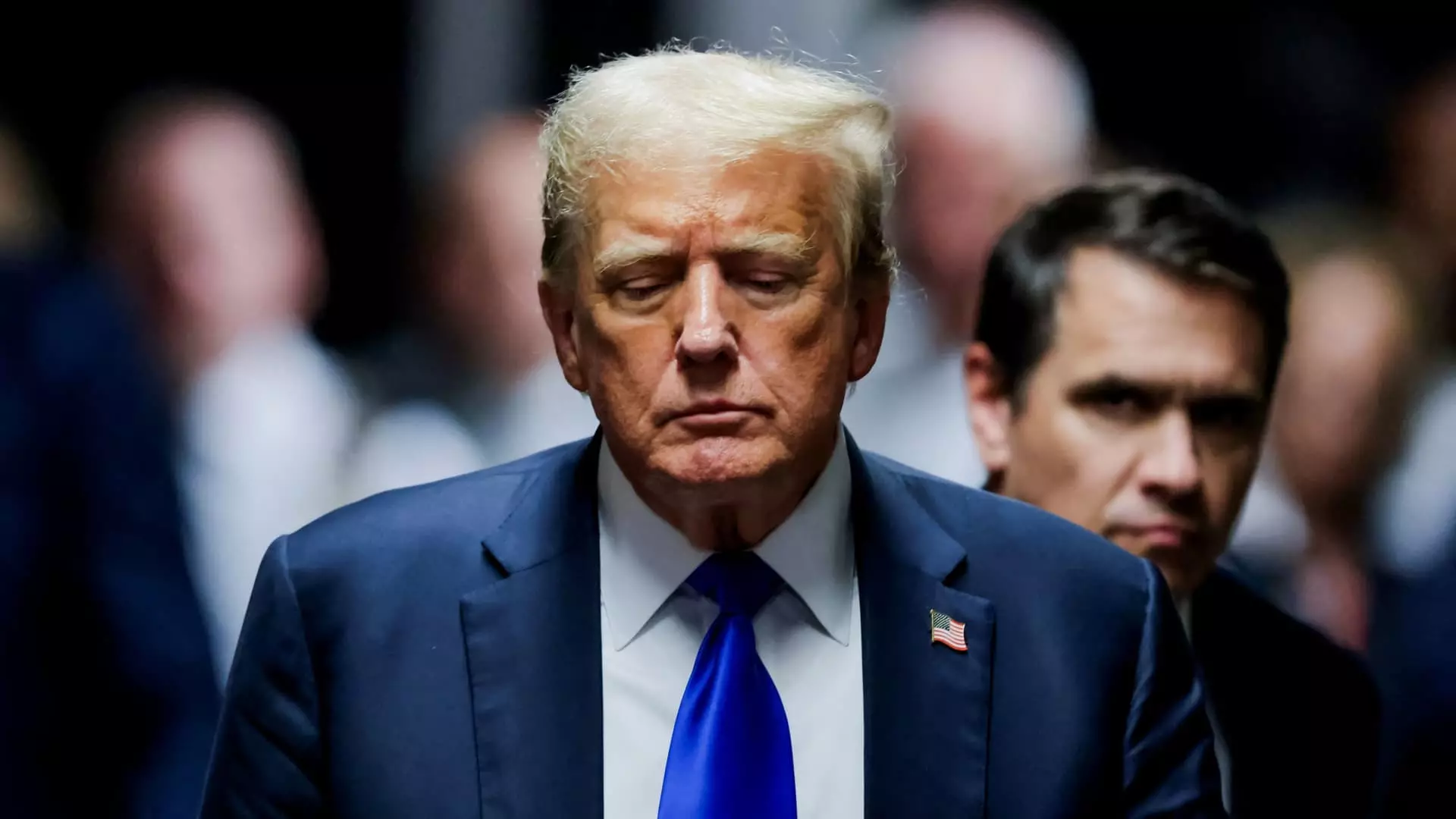Donald Trump’s legal challenges have continued to escalate as his assertion of presidential immunity faces scrutiny in a New York courtroom. Recently, Donald Trump’s bid to have his conviction dismissed on the basis of alleged presidential immunity was turned down by Judge Juan Merchan of the Manhattan Supreme Court. This ruling exemplifies the ongoing tension between the legal system and the political landscape surrounding the former president.
Trump’s legal team argued fiercely for the dismissal of the case, contending that the trial’s reliance on testimony from former White House employees was inappropriate. The crux of their argument rested on a U.S. Supreme Court ruling that suggested a kind of presumptive immunity for presidential actions. However, Judge Merchan dismissed these claims by emphasizing that involvement in falsifying business records constitutes decidedly personal conduct.
While Trump’s attorneys posited that their arguments warranted a complete dismissal of the charges—34 felony counts related to falsifying business records—Judge Merchan expressed that the prosecution was justified in moving forward, regardless of the evidence presented from Trump’s time in office. He made it clear that even if the contested evidence was deemed as “official conduct,” the nature of the charges against Trump still held weight and could not be overlooked.
The implications of this ruling go beyond just the immediate legal context. For the political sphere, this case has the potential to further polarize public opinion on Trump. His claim of being targeted by a “witch hunt,” a phrase commonly used by the former president, has not waned in traction. After Judge Merchan’s decision, Trump’s transition spokesman Steven Cheung criticized the ruling, stating that it was a violation of constitutional protections. Such rhetoric serves not only to bolster Trump’s base but also contributes to the ongoing discourse regarding the accountability of public officials.
Moreover, the ramifications could extend to how future presidents approach their actions in office, particularly if they find themselves embroiled in legal challenges. If the court finds that conduct related to personal affairs holds no immunity, it could open a Pandora’s box of litigation against not only Trump but future officeholders as well.
As the legal battle unfolds, Trump’s attorneys have hinted at the possibility of appealing the ruling. They are pushing for the postponement of any sentencing until the complete appeals process can be navigated. This request reveals a strategic approach that acknowledges the potential long-term legal and electoral effects that a conviction might carry for Trump’s political ambitions.
Presently, the Manhattan District Attorney’s Office speculates that sentencing may be delayed until after Trump’s term ends; however, that decision ultimately lies in the hands of Judge Merchan. Nonetheless, Trump has already made history as the first former president to be convicted of a crime, and the lingering question remains whether future legal entanglements will affect his standing among supporters.
At the heart of the case lies the infamous $130,000 payment made by Trump’s then-personal lawyer, Michael Cohen, to adult film actress Stormy Daniels. This payment was purportedly made to silence allegations of an affair that occurred before Trump’s presidency. Trump has consistently denied these allegations, yet the effort to keep the claim under wraps has significant legal and ethical implications.
The intersection of personal misdeeds with public office presents challenging questions about the boundaries of presidential conduct and accountability. As the case develops, it will be crucial to watch for how the courts interpret these actions and how they might influence political discourse surrounding presidential conduct.
With the legal proceedings still in flux, this case not only shapes Trump’s immediate future but also sets precedents that may reverberate throughout American political and legal systems for years to come. The core debates about accountability, presidential conduct, and the pursuit of legal redress against powerful figures are likely to dominate discussions for the foreseeable future. As Trump moves through this challenging chapter, the outcomes of these legal battles will be pivotal not just for him, but for the very framework that defines presidential power in America.

Leave a Reply